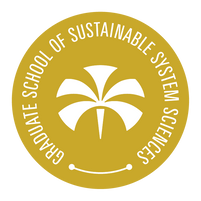Transforming
Language
Education
Teacher
and
Learner
Diversity
Across
Asia-Pacific
March 15, 2025
10:00-15:50
I-site Namba
Program
Keynote Speakers
Rebecca Cairns
Deakin University,
Australia
Dr Rebecca Cairns is a senior lecturer at Deakin University, Australia. Her curriculum inquiry research investigates how we do curriculum. It examines the complex practices of curriculum actors, texts and spaces, with a focus on the intersection of history education, studies of Asia and decolonising approaches.
Working with students and teachers to decolonise curriculum in the Australia-Asia region
Decolonising curriculum is an important project for societies that have experienced imperialism and colonialism, either as coloniser and/or colonised. It starts with critically reflecting on how we are individually and collectively positioned by place and the ongoing effects of colonialism on curriculum and educational systems. This paper presents a perspective on decolonising curriculum through a transnational lens. Drawing on Chen’s (2010) Asia as method and recent Australian research on decolonising education (e.g. Cairns, Fricker & Weuffen, 2024; Cairns & Weinmann, 2023), it proposes some practical strategies for teachers and students. Although decolonising curriculum is a highly localised process and is not something that can be universalised, this presentation seeks to find some common ground for educators grappling with these challenges from across a range of places.
Kayoko Hashimoto
The University of Queensland,
Australia
Kayoko Hashimoto is Senior Lecturer in the School of Languages and Cultures at The University of Queensland, Australia. Her main research area is language policy. She is the author or editor of five books. Her latest edited book is Rethinking the Asian Language Learning Paradigm in Australia (2024, Palgrave Macmillan).
Rethinking the Asian language learning paradigm in Australia
The edited book, Rethinking the Asian Language Learning Paradigm in Australia (2024), is the outcome of a one-day symposium entitled “Empowering Asian language speakers to become language teachers in Australian schools”, which was held at The University of Queensland on 3 July 2023. It calls for a rethink of the current Asian language learning paradigm that frames Asian languages as strategic and economic tools, rather than an inherent part of Australian society. As an increasing number of Australians have Asian ancestry and speak languages other than English at home, it argues that we must reset the paradigm and understand Asian languages as intrinsically Australian to maximise existing linguistic and cultural assets. Highlighting core issues that each chapter raises, this talk urges a transformative approach to Asian language education in the context of current global migration and multilingual demographics in order to nurture global citizenship and honour linguistic diversity.
InChull Jang
Seoul National University,
South Korea
In Chull Jang is an associate professor in the department of English language education at Seoul National University. His research interests include critical sociolinguistics, educational migration, and the ideologies of English in South Korea. Currently, he is working on a book project that explores the relationship between educational migration and class dynamics in South Korea.
Constrained linguistic diversity in internationalized South Korean universities:
An ethnographic linguistic landscape study
South Korean universities’ recent policy of internationalization has attracted a greater number of students from various ethnic and linguistic backgrounds. This talk explores whether this increasing student diversity will lead to linguistic diversity in public spaces on or off campus. Drawing on 2.5 years of ethnographic fieldwork on multilingual signage and various stakeholders’ perceptions of multilingual signs, this study shows that while Korean and English are the primary languages used on public signage, multilingual signage is limited to specific locations, such as language education centers, or serves specific purposes, like informing and commanding public etiquette. Despite the constrained use of minor languages on campus, international students express that multilingual signs in public spaces are unnecessary due to the widespread use of social media for public communication and their identities as Korean language and culture learners. This constrained linguistic diversity in internationalized universities calls for more nuanced and contextualized approaches to diversity and inclusion for international students.
Invited Speakers
Gregory Paul Glasgow
Kanda University of International Studies,
Japan
Gregory Paul Glasgow is an Associate Professor of English at Kanda University of International Studies. His research integrates critical applied linguistics, sociolinguistics, and social theory, including critical realism and post/decolonial perspectives, to examine English language education policy and practice. His most recent monograph is Black Teachers of English(es) in Japan: Transnational, Professional, and Pedagogical Encounters (Multilingual Matters).
Language teacher diversity in Japan:
The professional experiences of English teachers of African descent
Although Japan’s current ELT landscape appears to reflect greater teacher diversity, educational structures and cultural assumptions can at times constrain these educators’ agency in introducing students to their rich cultural and linguistic backgrounds. These challenges create barriers to implementing ELT approaches that recognize English as a global lingua franca. Drawing on critical realism as a multi-layered analytical lens, I examine the professional experiences of English teachers from the African continent and its diaspora, exploring key challenges and opportunities they encounter in their educational contexts. This talk offers insights into broader issues of equity and representation in language education, and will be especially relevant to educators, administrators, curriculum designers, and researchers committed to fostering inclusive and interculturally aware pedagogical communities.
Naoko Hosokawa
The University of Tokyo,
Japan
Naoko Hosokawa is a project lecturer at the University
of Tokyo. She previously worked at the University of Strasbourg, and the European University Institute. She holds a PhD in Oriental Studies from the University of Oxford. Her recent publications include the monograph Loanwords and Japanese Identity: Inundating or Absorbed? (Routledge 2023)
Changing scripts, changing storytellers:
The role of Katakana in English-language textbooks
This paper examines the use of katakana in English-language education in Japan, focusing on personal names in English-language textbooks used in primary and secondary schools. Over recent decades, English-language education has been reformed with the goal of enhancing the English proficiency of the Japanese population. Along with these reforms, however, there has been a seemingly counterintuitive development. On the introductory pages of textbooks, the names of protagonists are now transcribed in Japanese scripts, with katakana used for nonJapanese names. Why this seemingly counterintuitive change? Employing critical discourse analysis, this study investigates the rationale behind the shift in script choice and other major changes in textbooks. It argues that the use of katakana alters the perspective, positioning the narrative as distinctly Japanese. While this gives certain language ownership to learners, the paper cautions that such a shift in perspective may narrow English-language education towards a Japan-centric focus.
Rika Kusunoki
Kyushu University,
Japan
Rika, an Associate Professor at Kyushu University, teaches Japanese to international students and coordinates the JACs (Japanese Academic Courses) program. She holds a PhD in Applied Linguistics from the University of Queensland. Her research focuses on Japanese language education policy in relation to Japan’s immigration policy at the micro level.
Challenges and opportunities of managing Japanese class with diverse learners
This presentation explores the challenges and opportunities involved in managing a Japanese language class as well as a Japanese language course with diverse learners. As classrooms become increasingly diverse, instructors face the task of accommodating students with varying proficiency levels, cultural backgrounds, and learning styles. When looking at coordinating a language course with such diverse classes, diversity also exists in aspects such as instructors and class sizes. This presentation reviews a Japanese language course for international students at a Japanese university in order to provide practical strategies and insights for effectively managing a diverse group of learners as well as a diverse group of classes in a language course. Using these strategies and insights, instructors can enrich the learning experience and create a more engaging and collaborative classroom atmosphere.
Kazuyuki Nomura
Chiba University,
Japan
Kazuyuki Nomura is an Assistant Professor in the Graduate School of Global and Transdisciplinary Studies at Chiba University. His main research interest is intercultural education in the Asia-Pacific region, especially Hong Kong and Japan. Kazuyuki has published in international journals such as Educational Philosophy and Theory and Journal of Multilingual and Multicultural Development.
Teaching to engage the disengaged:
Teacher training at a Japanese
language school in Hong Kong
Hong Kong’s demographic changes following political unrest have had a significant impact on Japanese language education, particularly in the private sector. With many families emigrating, language schools face fierce competition for students, as well as the rise of digital self-learning tools that enable many learners to achieve high levels of fluency. Adapting to this changing landscape is a challenge for both schools and teachers. This study explores my collaboration with a suburban Japanese language school from December 2024 to March 2025, where I worked with teachers to increase learner engagement. The findings show that after acknowledging the value of Cantonese and applying the engagement strategies outlined by Mercer and Dörnyei (2020), engagement levels increased significantly, particularly among young learners taught by native Japanese speakers. These findings provide valuable insights for language educators across the Asia-Pacific region, particularly those seeking to better engage diverse learners in an increasingly challenging and technology-driven educational environment.
Registration
You can register via QR code or this link
( Free of charge).
Any inquiries should be addressed to

Note:
While drinks with lids are welcome, we kindly ask that you refrain from bringing food into the conference room.
Nankai Namba Daiichi Building 2F and 3F, 2-1-41 Shikitsu Higashi, Naniwa-ku,
Osaka City, 556-0012
Tel:06-7656-0441
<How to get to the I-site Namba>
By Nankai Railway:
- From Namba Station (Main Line): Central Exit, 12 min walk south (800m)
- From Imamiya-Ebisu Station (Koya Line): 6 min walk north (420m)
By Osaka Metro:
- From Namba Station (Midosuji Line): Exit 5, 15 min walk south (1000m)
- From Daikokucho Station (Midosuji/Yotsubashi Lines): Exit 1, 7 min walk east (450m)
- From Ebisucho Station (Sakaisuji Line): Exit 1-B, 7 min walk west (450m)
Note: No parking available. Please use public transport or nearby coin parking.
大阪市浪速区敷津東2-1-41 556-0012
Tel:06-7656-0441
<I-site なんばへのアクセス方法>
南海電鉄ご利用の場合:
- 南海本線 「なんば」駅 中央出口下車南へ約800m、徒歩約12分
- 南海高野線 「今宮戎」駅 下車北へ約420m 徒歩約6分
大阪メトロご利用の場合:
- 大阪メトロ御堂筋線 「なんば」駅5号出口下車南へ1000m、徒歩約15分
- 大阪メトロ御堂筋線・四つ橋線 「大国町」駅1番出口下車東へ約450m、徒歩約7分
- 大阪メトロ堺筋線 「恵美須町」駅1-B出口下車西へ約450m、徒歩約7分
※本施設には、駐車場・駐輪場はございません。公共交通機関もしくは周辺のコインパーキングをご利用ください。
Inquiries
Any inquiries should be addressed to
Note:
- The symposium will be conducted in English.
- Please refrain from bringing food into the conference room.
- Only beverages with lids are allowed inside the conference room.
This symposium is sponsored by Graduate school of sustainable system sciences of Osaka Metropolitan University and KAKENHI


Graduate school of
sustainable system
sciences

